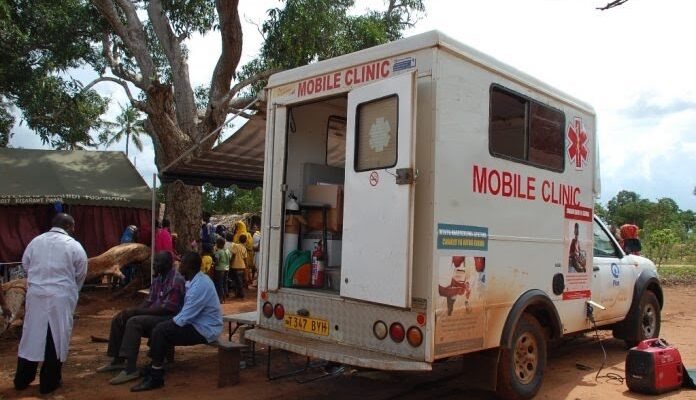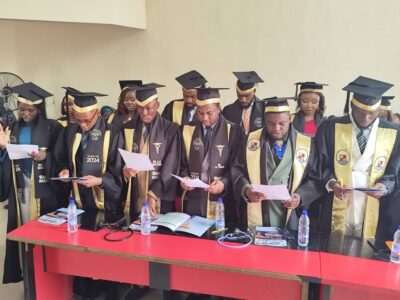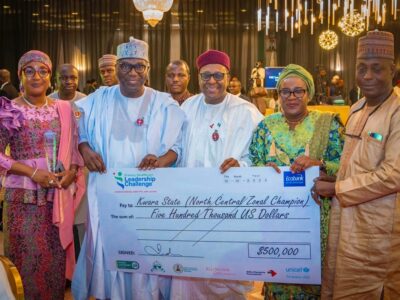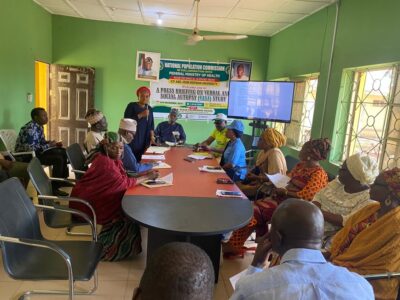By Usman Aliyu
One of the major challenges of life in rural communities in developing countries such as Nigeria is lack of access to basic amenities. Facilities such as power supply, motorable roads, schools as well as equipped hospitals for quality and affordable health care services are not readily available in these remote areas like in urban areas.
Experts blame the situation for the countryside experiencing a higher prevalence of chronic conditions like heart diseases, respiratory diseases, stroke and diabetes among others.
Limited health promotion, disease prevention programme and healthcare services, the experts noted are responsible for a higher rate of mortality and disability among the rural dwellers, than in the urban communities.
A development association in Diaspora, Igbomina Community in North-America (ICNA) in 2016 launched a mobile clinic project for quality healthcare delivery to their kinsmen at home. They are acting on the importance of health.
Mobile clinics are aptly put as vehicles, designed to be fully functional primary care clinics. Whether they are aircrafts, buses, boats or trains, they come complete with examination rooms, wheelchair lift and the same medical equipment and technology that can be found in a clinic.
The World Health Organisation (WHO) corroborates that mobile clinics offer flexible and viable options for treating isolated and vulnerable groups, thereby improving access to local, on the spot primary health service for people living in underserviced communities.
Therefore, the initiative by the ICNA which is tagged “Igbomina Mobile Clinic seeks to take healthcare services to the doorsteps of the residents of local government areas that make up the Igbomina clan in Kwara.
Chief Olaitan Oyin-Zubair, the Secretary and Coordinator of the project, explained that the intervention, which started in Ifelodun, Irepodun and Isin local government areas, afterwards, enjoyed partnerships from the state government, corporate entities and development unions of neighbouring communities such as the Offa Descendants Union (ODU).
Oyin-Zubair asserted that the project had catered for the health needs of about 400 Igbomina communities in Offa, Oyun, Ifelodun, Isin and Irepodun local government areas of the state through the provision of a first line of medical care services to the people.
“The initiator is in partnership with the Landmark University Omu-Aran, where it donated a mini-mobile clinic bus to the institution to impact healthcare services in the localities.
“The focus of the mobile clinic is to highlight and provide preventive care in the areas of major silent killers such as diabetes, hypertension, malaria and other ailments.
“In the short period of operation, the project has impacted and saved many lives. Precisely between July and September of 2016, over 4,500 patients were seen and cared for,” he said, recalling how a baby’s life was saved in one of the covered communities due to a timely intervention of volunteer doctors and medical practitioners.
Meanwhile, Mr Emmanuel Adewuyi, Chairman, Project Implementation Committee while expatiating on the mode of its operations said a roster was prepared for the clinic to cover the nooks and crannies of Igbominaland.
“The committee ensures that come rain or sunshine it dutifully executes its mandate of twice a month outreach programme that has effectively touched over 10,000 lives while providing medications in excess of over US $2 million at open market value.
“This programme has indeed become a model that many across Kwara South Senatorial District depend on for their health services. In its short life, the clinic has set a high standard and distinguished itself as a great life-saving programme while demonstrating the power of collective will for a singular purpose and agenda,” said Adewuyi.
Justifying the sponsorship of the free health care initiative, Chief Nurudeen Adeyemi, the Chairman of the ICNA said that such intervention became necessary because ailments such as malaria, diabetes and high blood pressure among other killer diseases were common among the people.
Adeyemi said he was elated that many lives had been saved through early diagnosis and treatment, describing the gesture as the organisation’s only way of giving back to the society.
He decried the huge deficiency in the health sector, particularly in the rural communities, and called on the three tiers of government to fix the challenges inhibiting quality health care delivery among the people.
Adeyemi, who is a United States of America-trained automobile engineer and vehicle designer, announced a plan to use a larger platform to extend the services to other parts of the state. He attributed interest in community development and humanitarian activities for the efforts to improve the health lot of the people in many Kwara communities.
One of the beneficiaries, Mr Samuel Akanji described the programme as non-discriminatory, which caters for medical care of everybody, including herdsmen living in remote villages.
Akanji commended the initiators of the health scheme and the volunteers for their community services with attestation that that singular effort has saved the lives of many residents particularly the down-trodden. He thereby urged “well-to-do” individuals of Igbomina origin to help in ensuring sustainability of the initiative.
Also appraising the project, Oba Abdulrauf Oyerinde, the Oniwo Of Odu-Ore in Isin local government area of the state, said the health project was the best thing to have happened in the land in recent years.
Oyerinde noted that the zeal and high commitment of the sponsors, mobilisers and medical volunteers towards the implementation of the health programme was worthy of commendation.
However, the project coordinator said the intervention needed more funds for continued services, and medications. Medication according to him are purchased from the United States and shipped to Nigeria, with complementary medication for malaria purchased locally.
“About $10,000 worth of medication is required every 3 months for about 4,000 patients (about $2.50 per patients). This laudable programme is a continuous project with urgent needs for medications,” he said, calling on other well-to-do individuals and corporate bodies to support the applauded life-saving programme towards improving the life expectancy of the Igbomina people.










Comments